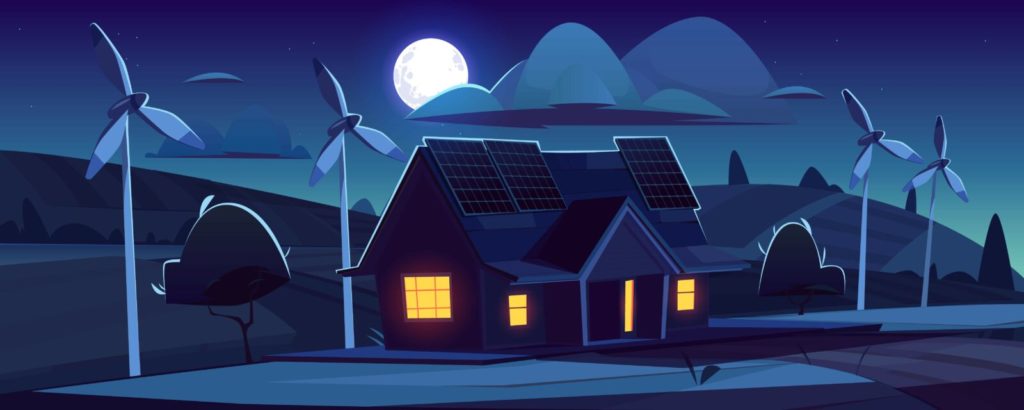Climate breakdown, net zero, and the day-to-day operations of Business Hive Members.
We’ve all seen the news and the weather in the past few months bringing everything the doom-mongers promised since at least the 1990s. Nearly everyone has made efforts to cut energy use since prices increased more than a year ago. It doesn’t matter for the climate if the reason for the cuts in energy use is to save money or reduce carbon dioxide emissions, the benefit is the same.
It’s clearly important stuff – in the event AI doesn’t eat us for breakfast first – so what can small business owners lat Business Hive actually do in response?
But, does this stuff even bother people?
I joked about this with a Hive Member at their shop in Grimsby: me: “I know when you get up every morning you think about your path to net zero by 2030 or whenever.” Him “Er, yeah right…..” He wanted a path to sorting out some meter issues, thoughts on sorting out the heating, getting lower energy lighting and not spending too much on improving his landlord’s property. Plug Alert! These were all addressed in their Decarbonisation Plan via E- Factor.
A greengrocer on Freeman St Market had some very skinny leeks on sale. Me: “Is the farmer really struggling with drought?” Her: “Totally. Not a lot of people realise. They can’t get them all watered so they are picking them small and this was all we could get.” Here are the global problems, right there on the veg stall at the local market.
A slightly technical section
Nearly all businesses use electricity, and most use gas. Decarbonisation is easier with electricity so let’s dip into the reasons why.
The story with electricity in the UK is fairly positive. Great strides have been made in decarbonising the electricity grid. In 2002 a kilowatt hour of electricity made 0.49 kg carbon dioxide and other greenhouse gases. Today, it’s just 0.22 kg CO2e/kWh. What happened? Coal was used less, and solar, onshore and offshore wind much more. Grimsby and the Humber continue to play a big part in this story.
But what about gas? Natural gas – methane – CH4 – has the carbon right there in the middle of the molecule. It would be nice to just use the hydrogen (H) without the C getting with the O2 to make climate changing CO2. For that to happen, industry must crack the problem of picking the hydrogen off and shoving the carbon back under the ground whence it came. All at big scale, acceptable cost, and safety, with decisions to be made if it stays on industrial sites or is piped out to the public. Making hydrogen from H2O using spare renewable electricity is another new industry on the way. Both are being progressed locally, but climate friendly gas heating isn’t an option for a while yet.
So small businesses using electricity rather than natural gas are in a better position for decarbonisation – because these changes to the national grid are doing the job for them. Carbon reduction of the national grid is expected to continue.
Some positive steps – and some electrifying ones
Back to the local day to day examples. Turns out, one client was on a green electricity tariff – all from renewable electricity – and didn’t even know! Now they do they can let their customers know about their climate-positive action! (Not sure if you are? Check here Fuel Mix of UK Domestic Electricity Suppliers – electricity info )
Another client works in a reasonably sized shop with an oversized gas bill due to their old boiler. They were seeking a grant from North East Lincolnshire Council’s to upgrade to air source heat pumps. The financial benefits of this depend up on the relative gas and electricity prices, and some installer-provided calculations which E- Factor were able to check and verify. The kilowatt hours are important for the application for the UK Shared Prosperity Fund grant, because the grant officer looks at value for money for savings to decide the percentage funded up to a maximum of 40%.
We shouldn’t forget energy efficiency. On a really hot day – despite the offices having air conditioning available, it wasn’t on. Temperature was reasonable indoors and staff assured me that senior managers simply don’t permit it. Window blinds were down before the sun moved onto the windows, which were open on all sides to get a breeze through the building. Having the air con on for long periods can lead to greatly increase energy bills.
Three things to do now
You know your business best, so here are three top things to consider:
- Which of your supplies or activities are vulnerable to disruption from crazy weather, at home or abroad?
- What equipment uses the most energy in your business – and how are you controlling that?
- Are you looking to upgrade energy using equipment? if so, have a look at North East Lincolnshire Council’s UK Shared Prosperity Fund pages UK Shared Prosperity Fund (UKSPF) | NELC (nelincs.gov.uk)
E- Factor’s team can help you to progress on all of these questions – from a short discussion on a specific question, to a Decarbonisation Plan and advice on making grant applications.
